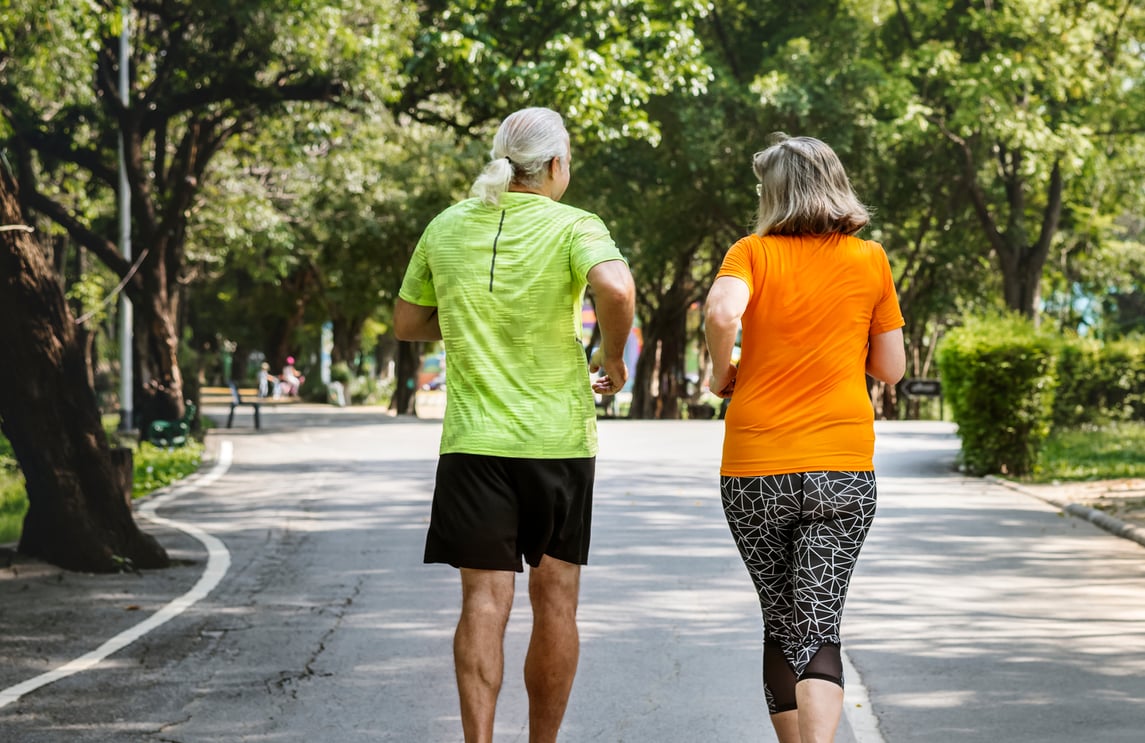One of the crazy things about aging is that so much happens to our bodies and our brains that we can’t see. We realize that we just can’t move as well as before, that it is hard to get out of a chair, or our balance just isn’t what it used to be - it can be daunting. How did this even happen?
Unfortunately, we don’t give our lifestyle a lot of thought as we are moving through the years. Sure, we might have eaten the wrong foods or watched too much TV, but that didn’t seem to make a difference at the time. But like any precision instrument, the wear and tear of that lifestyle takes its toll on our bodies and our brains. That leaves the question – is it too late to live a healthy lifestyle?
Metabolism
It is never too late to change bad habits into positive life skills. We need to first understand that our bodies have changed and operate a little differently than when we were younger. Metabolism (the mechanism of using sugar and fat for energy) slows down. If we are not active, we don’t burn that sugar and fat; it results in weight gain and no energy. It becomes a vicious cycle – we are too tired to do anything, and our bodies and brains pay the price.
Time to Get Up and Move
So, this is the first big lifestyle change: we need to get up and move. Find a partner to hold you accountable. It is always more fun when you exercise with someone. Time for the two of you to start walking. This exercise doesn’t need any fancy clothes or equipment. It just needs you to walk about 30-40 minutes per day for 4-5 days per week. The benefits for walking are huge!
It is a weight-bearing exercise, so you are strengthening your bones. If you have osteoporosis, then this is a huge benefit. You are strengthening your legs, knees, ankles and feet. If you challenge yourself by walking on uneven ground, you are challenging your balance – otherwise known as your vestibular system. Our vestibular gets weaker as we get older, which puts us at a high risk for falls.

Healthy Heart, Healthy Brain
Walking is great for your heart and brain. When you walk your heart starts pumping harder, which gets your circulation moving. Another one of the main beneficiaries of walking is your brain. When the heart starts pumping more blood, more blood goes to your brain. The brain needs 20% of the oxygen, carbohydrates and blood from each and every heartbeat. It uses these nutrients to produce the energy we need to think and function and betters our cognitive fitness. And one more brain benefit: the blood, oxygen and carbohydrates pumped to the brain stimulates it to make new neurons (brain cells). Through this process, we can start to turn those aging losses around.
If you can’t walk to get these benefits, go swimming, ride a bike, or participate in chair exercises.
It is never too late to change your lifestyle.
Patricia Faust, MGS is a gerontologist specializing in the issues of brain aging, brain health, brain function and dementia. She has a Masters in Gerontological Studies degree from Miami University in Oxford, Ohio. Patricia is certified as a brain health coach by Dr. Cynthia Green of Total Brain Health and received a certification in Neuroscience and Wellness through Dr. Sarah McKay and the Neuroscience Academy.
Patricia teaches, coaches and consults on issues of brain aging and brain health. Her newsletter, My Boomer Brain, has international readership. Patricia’s focus is to teach people the value of living a healthy brain lifestyle to prevent the onset of dementia. Contact her at patricia@myboomerbrain.com.





